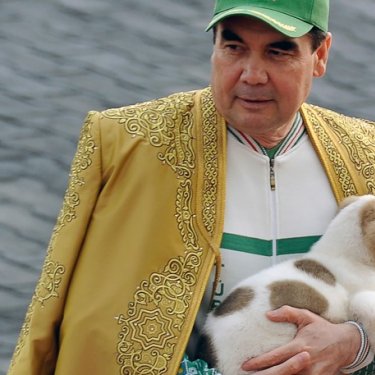Coronavirus off limits in Turkmenistan

The Turkmen authorities are avoiding use of the word “coronavirus” as much as possible in order to deter the spread of information about the pandemic. By doing so, Turkmenistan’s government is putting its citizens in danger, Reporters Without Borders (RSF) says.
It's as if it had never existed. The state media are saying nothing about the effects of coronavirus in Turkmenistan and the word has even been removed from health information brochures distributed in schools, hospitals and workplaces, according to Turkmenistan Chronicles, one of the few sources of independent news, whose site is blocked within the country.
In this information black hole neighbouring Iran, people wearing face masks or talking about the coronavirus on the street, at bus stops or in lines outside shops are liable to be arrested by plainclothes police, according to journalists based in the capital, Ashgabat, who report for Radio Azatlyk, the Turkmen language service of Radio Free Europe/Radio Liberty.
“The Turkmen authorities have lived up to their reputation by adopting this extreme method for limiting all information about the coronavirus,” said Jeanne Cavelier, the head of RSF’s Eastern Europe and Central Asia desk.
“This denial of information not only endangers the Turkmen citizens most at risk but also reinforces the authoritarianism imposed by President Gurbanguly Berdymukhammedov. We urge the international community to react and to take him to task for his systematic human rights violations.”
Turkmen citizens only have access to very one-sided information about the coronavirus epidemic while, according to the authorities, no case has so far been detected in Turkmenistan. The president, also known as “Father Protector,” gave orders on 13 March for public spaces to be fumigated with a traditional plant called “harmala” as a protective measure.
In Moscow, the Turkmen embassy hotline for Turkmen citizens trapped in Russia by the Covid-19 crisis refuses to answer journalists’ questions about the assistance offered to those who want to return home. Radio Azatlyk reports that, since the embassy’s closure on 17 March, many Turkmen citizens have been waiting in vain at Moscow’s Domodedovo airport for a flight because they have nowhere else to stay.
Ranked last in RSF’s 2019 World Press Freedom Index, Turkmenistan is one of the world’s most closed countries. The government controls all domestic media and continues to step up its persecution of those who clandestinely report for exile media outlets. The few Internet users can only access a highly-censored version of the Internet, usually in cafés where they must first present identification.



